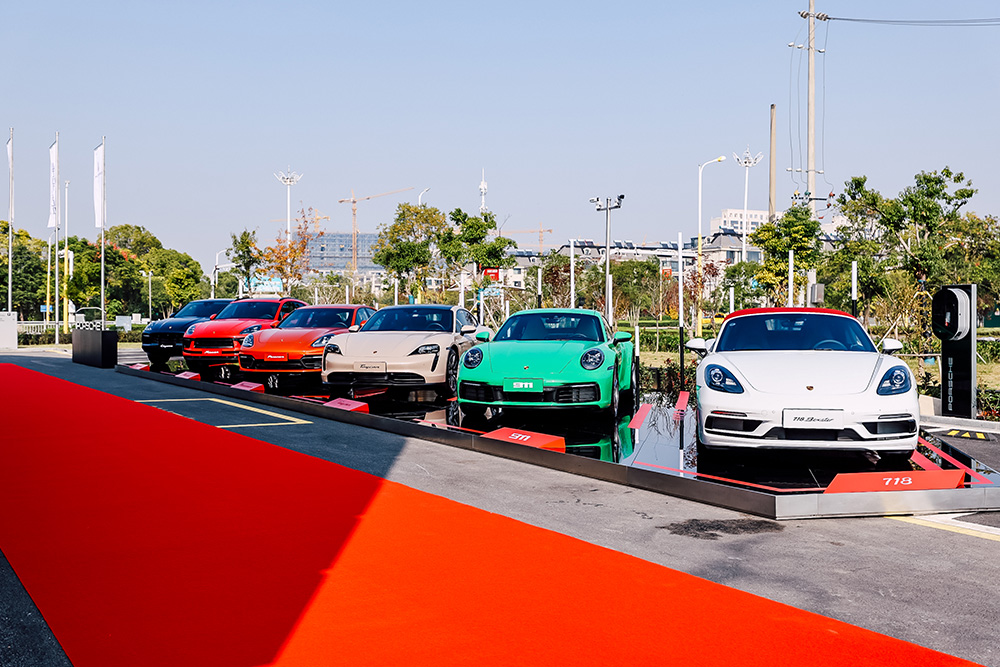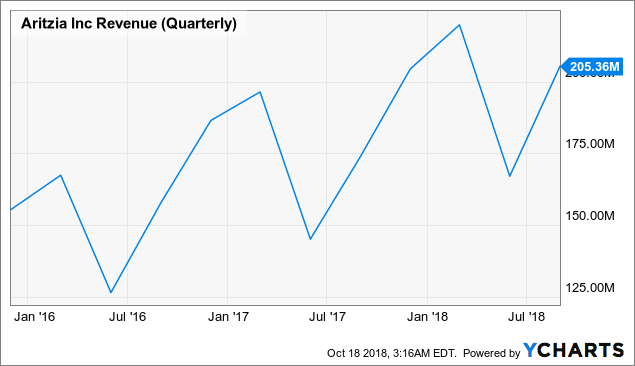BMW, Porsche, And The Shifting Landscape Of The Chinese Automotive Market

Table of Contents
The Evolving Chinese Consumer: Preferences and Demands
The Chinese consumer is no longer simply seeking luxury; they are demanding innovation, technology, and a personalized experience. This evolution profoundly impacts how BMW and Porsche must approach the market.
Shifting towards New Energy Vehicles (NEVs):
The demand for electric and hybrid vehicles (NEVs) in China is skyrocketing, driven by government incentives, growing environmental awareness, and technological advancements. This shift necessitates significant adaptation from luxury car manufacturers.
- BMW: Has responded with its iX and i4 models, tailored to appeal to the Chinese market's desire for cutting-edge electric vehicles.
- Porsche: The Taycan, Porsche's fully electric sports car, is gaining popularity among affluent Chinese consumers seeking sustainable luxury.
- Government Incentives: Generous subsidies and tax breaks for NEV purchases are accelerating their adoption rate.
- Charging Infrastructure: The rapid expansion of China's charging infrastructure is further supporting the transition to electric mobility.
Focus on Technology and Digitalization:
Chinese consumers, particularly younger generations, prioritize advanced technology and seamless digital connectivity in their vehicles. Features that were once considered luxuries are now considered necessities.
- Advanced Driver-Assistance Systems (ADAS): Features like lane-keeping assist, adaptive cruise control, and automated parking are highly sought after.
- Infotainment Systems: Intuitive, user-friendly infotainment systems with large touchscreens and advanced connectivity are crucial for attracting tech-savvy buyers.
- Connectivity Features: Seamless smartphone integration, over-the-air updates, and embedded internet connectivity are essential for staying competitive.
- Online Services Integration: Integration of popular Chinese apps and online services within the vehicle's infotainment system is a key differentiator.
Emphasis on Brand Experience and Customization:
Beyond the technological aspects, the Chinese consumer values personalized experiences and customized offerings. Luxury is no longer solely defined by the product itself but also by the overall brand experience.
- Bespoke Options: The ability to personalize their vehicles with bespoke options and unique features is highly valued.
- Personalized Services: Tailored concierge services, exclusive events, and personalized after-sales support enhance the brand experience.
- Brand Storytelling: Connecting with consumers on an emotional level through compelling brand storytelling and marketing campaigns is critical.
- Customer Loyalty Programs: Rewarding loyal customers with exclusive benefits and experiences fosters long-term relationships.
The Rise of Domestic Chinese Automakers
The emergence of highly competitive domestic Chinese automakers like NIO, Xpeng, and BYD poses a significant challenge to established luxury brands. These companies leverage cutting-edge technology, competitive pricing, and strong government support to gain market share.
Competition from Local Brands:
These domestic brands are rapidly innovating, offering technologically advanced vehicles at attractive price points, often undercutting established luxury brands.
- Innovative Technologies: Chinese automakers are pushing the boundaries of technology, incorporating advanced features and autonomous driving capabilities.
- Competitive Pricing: Offering competitive pricing makes these vehicles accessible to a broader range of consumers.
- Strong Domestic Market Share: Domestic brands benefit from strong brand recognition and established distribution networks within China.
- Government Support: Government policies and incentives are actively supporting the growth of the domestic auto industry.
Joint Ventures and Partnerships:
In response to the competitive landscape, BMW and Porsche have increasingly engaged in joint ventures and partnerships with Chinese companies.
- Local Production Facilities: Establishing local production facilities reduces costs and improves efficiency.
- Technology Sharing: Collaborating with Chinese technology companies enhances innovation and access to cutting-edge technology.
- Supply Chain Partnerships: Strengthening supply chain relationships within China improves logistics and reduces dependencies.
- Marketing Collaborations: Partnering with local marketing firms helps tailor marketing campaigns for the Chinese market.
BMW and Porsche's Strategies in the Chinese Market
To maintain their market position, BMW and Porsche have implemented various strategies to adapt to the unique demands of the Chinese automotive market.
Product Adaptation and Localization:
BMW and Porsche are adapting their product offerings and marketing strategies to resonate with Chinese consumers' preferences.
- Localized Models: Developing vehicle models specifically tailored to the Chinese market's preferences and needs.
- Marketing Campaigns Targeting Specific Demographics: Developing targeted marketing campaigns to reach specific age groups and consumer segments.
- Dealer Network Expansion: Expanding their dealer networks to provide convenient access for consumers throughout China.
- After-Sales Service Improvements: Enhancing after-sales service and customer support to ensure customer satisfaction.
Investment in R&D and Manufacturing:
Significant investments in research and development and local manufacturing facilities are vital for long-term success in China.
- New Technology Development: Investing in the development of new technologies, including electric vehicle technology and autonomous driving systems.
- Production Capacity Expansion: Expanding production capacity to meet the growing demand for their vehicles in China.
- Supply Chain Diversification: Diversifying their supply chains to reduce dependence on single suppliers and ensure resilience.
- Talent Acquisition: Attracting and retaining top talent in engineering, design, and marketing to drive innovation and growth.
Sustainability Initiatives:
Environmental concerns are increasingly important to Chinese consumers, requiring luxury brands to demonstrate their commitment to sustainability.
- Electric Vehicle Production: Expanding their electric vehicle production to meet the growing demand for environmentally friendly vehicles.
- Carbon Reduction Targets: Setting ambitious carbon reduction targets across their operations in China.
- Sustainable Manufacturing Processes: Implementing sustainable manufacturing processes to reduce their environmental impact.
- Commitment to Environmental Responsibility: Communicating their commitment to environmental responsibility through transparent reporting and initiatives.
Conclusion
The Chinese automotive market presents both immense opportunities and significant challenges for luxury brands like BMW and Porsche. The evolving preferences of Chinese consumers, the rise of domestic competitors, and the rapid pace of technological change necessitate a dynamic and adaptable approach. By strategically investing in new technologies, localizing products, fostering strong partnerships, and prioritizing sustainability, BMW and Porsche are navigating this complex landscape and striving to maintain their leading positions in this crucial market for luxury cars. Stay informed about the future of the Chinese automotive market and dive deeper into the strategies employed by BMW and Porsche to understand the intricacies of this dynamic sector. Explore the competitive landscape of luxury cars in China to gain valuable insights into this rapidly changing industry.

Featured Posts
-
 Body Positivity And Fitness Lizzos Trainer Responds To Critics
May 05, 2025
Body Positivity And Fitness Lizzos Trainer Responds To Critics
May 05, 2025 -
 Louisiana Derby 2025 A Look At The Contenders Odds And Road To The Kentucky Derby
May 05, 2025
Louisiana Derby 2025 A Look At The Contenders Odds And Road To The Kentucky Derby
May 05, 2025 -
 Aritzias Strategy For Navigating Increased Tariffs
May 05, 2025
Aritzias Strategy For Navigating Increased Tariffs
May 05, 2025 -
 Migrants Desperate Escape Eight Hours Hiding In A Tree From Ice
May 05, 2025
Migrants Desperate Escape Eight Hours Hiding In A Tree From Ice
May 05, 2025 -
 Harvard President Revoking Tax Exempt Status Would Be Highly Illegal
May 05, 2025
Harvard President Revoking Tax Exempt Status Would Be Highly Illegal
May 05, 2025
Latest Posts
-
 Report Anna Kendricks Apparent Diss Of Blake Lively At Another Simple Favor Event
May 05, 2025
Report Anna Kendricks Apparent Diss Of Blake Lively At Another Simple Favor Event
May 05, 2025 -
 Another Simple Favor Premiere Did Anna Kendrick Throw Shade At Blake Lively
May 05, 2025
Another Simple Favor Premiere Did Anna Kendrick Throw Shade At Blake Lively
May 05, 2025 -
 Tension On The Red Carpet Anna Kendrick And Blake Lively At Another Simple Favor
May 05, 2025
Tension On The Red Carpet Anna Kendrick And Blake Lively At Another Simple Favor
May 05, 2025 -
 Anna Kendricks Subtle Diss To Blake Lively At Another Simple Favor Screening
May 05, 2025
Anna Kendricks Subtle Diss To Blake Lively At Another Simple Favor Screening
May 05, 2025 -
 Anna Kendricks Crop Top Trend Summers Must Have Shell Top
May 05, 2025
Anna Kendricks Crop Top Trend Summers Must Have Shell Top
May 05, 2025
